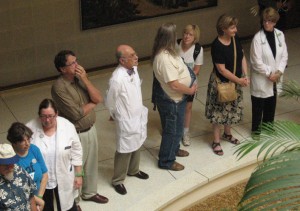Court ruling declares Kenyan police now “directly responsible” for damage suffered by rape survivors
News & Policy Update on Gender Violence in Kenya
CHMP Senior Fellow Nancy Cabelus, DNP, MSN, RN, an international forensic nurse consultant addressing sexual violence in conflict zones in central and east Africa has reported on gender violence in Kenya here on HealthCetera. You can read her previous posts here.
A major victory in the global effort to stop gender violence was reported in the May 29 edition of The Globe and Mail “Sexual-assault complainants in Kenya win legal victory against unresponsive police” .
After the police failed to act on the rape cases reported by 100s of Kenyan girls in the town of Meru they decided to organize to stop this. The girls were all well below the age of 18, some as young as 3, who have been given medical care and shelter at a rescue centre in Meru after they were raped by fathers, grandfathers, neighbours and others. With the help of local activists and a human rights organization they filed charges against the police for their blatantly ignoring them.
Their efforts prevailed in the courts ruling that the police had created a “climate of impunity,” and because of this impunity, “the perpetrators know they can commit crimes against innocent children without fear of being apprehended and prosecuted,” the court said.
This makes the police “directly responsible” for the physical and psychological damage suffered by the rape victims, the court ruled.
If the police now fail to obey the court judgment, they could face prison sentences or fines for contempt of court.
The ruling could have a major affect across Africa, where the same legal weapons could be used to ensure that rapists are prosecuted.”
News & Policy Update on Gender Violence




